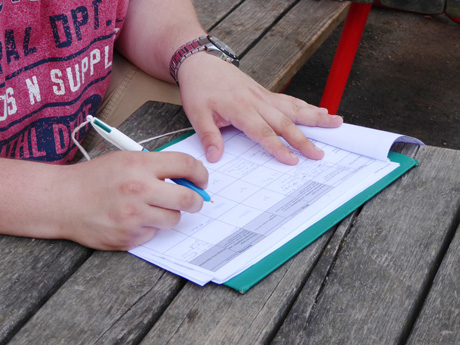Navigation auf uzh.ch
Navigation auf uzh.ch
Children are the explorers, discoverers and creators of their own development process, learning at their own pace1 within the common co-construction of other participants (children, carers, environment).

In order for children to enjoy a healthy development and to learn to the best of their capabilities, they require a stimulating environment in which they feel safe and secure, as well as carers who are available and reliable, and who respond with competence to each child’s individual needs. Following this principle, we place great value on how we build relationships in our daily daycare practice. Documented observations of the child form the basis for regular discussions with parents, ensuring a successful working partnership focussed on the well-being of the child.
In the daycare centres, we help the children to develop and progress, and to act happily and confidently in a small community. We encourage the children to be curious and inquiring in reference to themselves and their surroundings. We challenge them, encourage them to believe in their strengths and allow them to take initiative. We respect the children in their individuality and guide them while they search to understand how the world works. This involves the ability to make pro-active contact with others, to maintain well-developed relationship structures, to exercise mutual respect and practise cooperation, and to gain pleasure from discourse. Together we seek answers, exploring and discovering the ordinary and extraordinary aspects of the everyday.
Learning is only a sustainable process if the children see it as significant and relevant, and if it relates to their experiences, desires and everyday problems. For us, pre-school education means stimulating a child’s resources until they reveal their full potential, enabling the child to tap into the world around him. This appropriation process corresponds to the child’s instinct to be self-motivated, to probe, to observe, to question and to communicate, to acquire knowledge and to form a picture of the world for himself. Playing is learning by discovering from sensory experiences.2 Children acquire knowledge from their interaction with adults and peers. Since the ability to educate themselves is accomplished by interacting with the outer world, we provide sufficient stimulation but also plenty of repeated exercises.
A child should develop into an emotionally strong person. Development takes place when a child has successfully overcome challenges or difficulties, thus developing resilience, endurance and a strong will. In our work, we allow the children, as far as possible, to try things out for themselves and encourage them to solve tasks independently, in accordance with their abilities. By making targeted and sensitive observations of each individual child, we discover their strengths and preferences and offer each child specific chances to experience challenges that will help him grow.
Our pedagogical activities are primarily determined by the children’s interest in a particular subject, or by cultural and seasonal events. We work with the children on a project basis and provide them with a multi-sensory experience of the subject from various perspectives for an appropriate period of time. In doing so, we incorporate as many different educational areas as possible and consider the motor, cognitive, linguistic and social-emotional levels of the children’s development. Most importantly, we aim for a balance between planned activities and self-determined play.
1 According to the Reggio principles’ image of a child (cf. Lingenauber, S. (Hrsg.). (2013). Handlexikon der Reggio-Pädagogik. 5th edition. Freiburg: Projekt Verlag).
2 cf. Stamm, M.(2010). Frühkindliche Bildung, Betreuung und Erziehung.1st edition. Bern: Haupt)